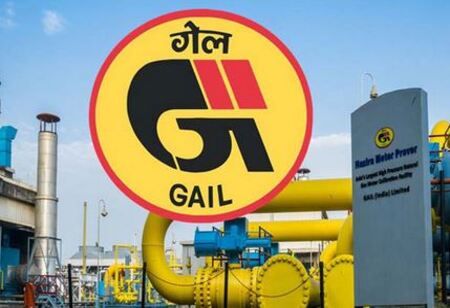
GAIL India to Receive Increased Tariff of Up to 35 Percent for Natural Gas


GAIL (India) Ltd is anticipated to receive an increase of up to 35 percent in the integrated tariff for the transport of natural gas through its pipeline system, which could enhance the pre-tax earnings of the state-owned firm by as much as Rs 3,400 crore each year, according to the company’s chairman Sandeep Kumar Gupta.
Currently, the levelized tariff of the integrated pipeline network, which handles around 90 percent of the gas volume, stands at Rs 58.61 per million British thermal units.
The adjustment in the integrated tariff, applicable to power plants, fertilizer units, and city gas operators using GAIL's 10 pipelines, is mainly prompted by GAIL's need to manage rising operational and maintenance expenses while also encouraging further investments in pipeline infrastructure.
The review of the tariff is expected to be finalized by the first quarter of the 2025-26 fiscal year (April 2025 to March 2026).
The government aims to increase the share of natural gas in the nation’s energy mix to 15 percent by 2030, up from the current 6.2 percent, as part of its energy transition objectives. To support this, GAIL is expanding its pipeline networks into new areas to deliver less polluting fuels to regions that are currently unconnected.
As additional areas are integrated into the pipeline network, GAIL may experience a gradual rise in demand for its transportation services.
This increasing demand, along with upgrades to the infrastructure, may result in tariff adjustments.
Gupta mentioned that the Petroleum and Natural Gas Regulatory Board (PNGRB) is likely to authorize the revised tariffs soon.
When establishing the tariff in 2023, PNGRB based its calculations on a price for government-controlled domestically produced gas, referred to as APM gas, at USD 3.61 per mmBtu for internal usage within the pipeline. This price is no longer applicable since the APM gas was redirected to cater to CNG requirements.
Currently, there is an annual loss of around Rs 1,200 crore due to this change.
Furthermore, the regulator has commissioned volume assessments conducted by EIL, which have resulted in lower results.
PNGRB is expected to reconcile the necessity for increased tariffs to accommodate GAIL's escalating costs while maintaining the government’s commitment to ensuring that natural gas remains affordable for consumers.
The tariff hike will aid GAIL in maintaining and expanding its infrastructure, enhancing its earnings, while aligning with the government's broader objectives of promoting the usage of natural gas throughout the country.
Also Read: Leadership Traits 2025 Case Study: The Middle-Class Man Who Delivered Rs.2000 Crore Dream
The proposed tariff zones are set to be segmented into two categories: one for distances up to 300 km and another for distances beyond that. Notably, the transmission tariffs for CNG and piped cooking gas (PNG) are intended to be included in the first zone of the unified tariff, regardless of where the entity sources the gas, he added, indicating that this is a beneficial development that will stimulate the sector and increase gas demand from the city gas industry.